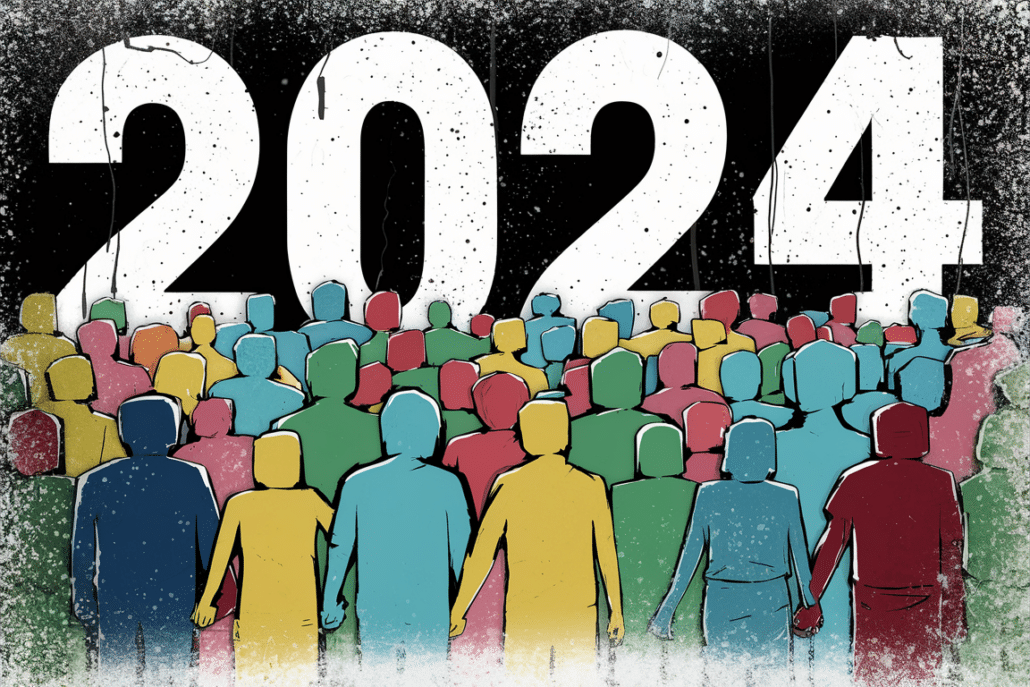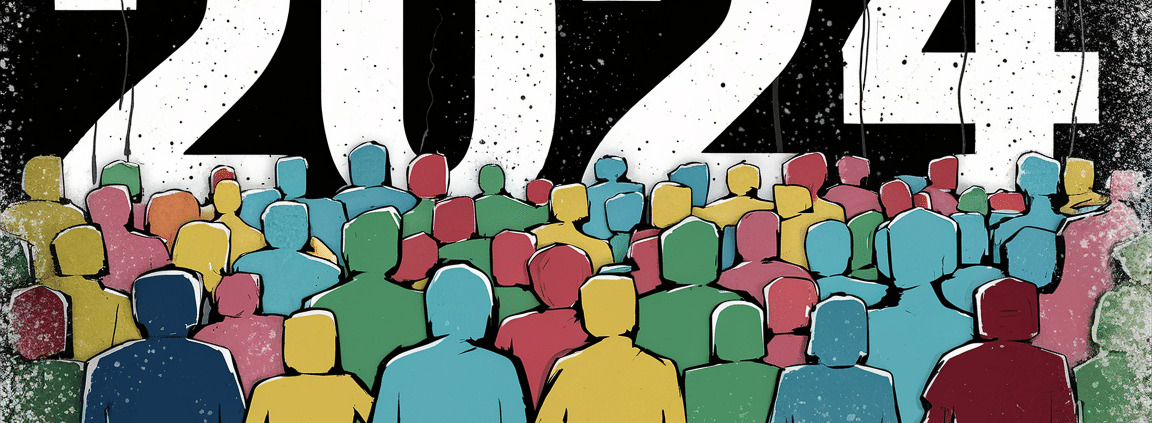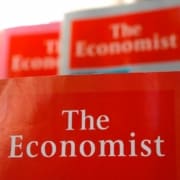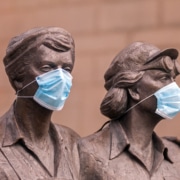Where Business Needs To Step Up On Human Rights In 2024

In an increasingly unstable and polarized world, far too many governments are unwilling or unable to protect their own people, undermining core human rights. As a result, global companies are being pressed to assume greater responsibility for protecting these rights. Here are four areas relating to human rights where corporate leaders need to focus attention in 2024.
Mandating human rights due diligence in the European Union
In one constructive response to certain nations failing to protect human rights, European governments are moving to regulate corporate conduct affecting workers and communities involved in global supply chains. The European Union’s Council and Parliament reached a preliminary deal in December to adopt an EU-wide Corporate Sustainability Due Diligence Directive (CSDDD), which is likely to be formally adopted in 2024. It will require each of the 27 EU member states to enact laws regulating corporate actions globally with respect to human rights and the environment. The directive envisions financial penalties for companies that fail to meet these obligations. A precursor to these region-wide regulations is the German Supply Chain Act which went into effect earlier this year. It requires companies to establish procedures to assess and report on risks throughout their supply chains, and requires remedial actions when they discover violations. Intentional or negligent violations can be punished with fines of two percent of annual global revenues for large companies. Though it will take several years for member states to enact CSDDR laws, companies doing business in Europe now need to build systems that will address these issues, and especially the rights of workers throughout their global supply chains, in anticipation of the EU’s evolving regulatory framework.
Reforming ESG investing
In the last year in the U.S., some conservative politicians and pundits have continued to attack environmental, social and governance (ESG) investment frameworks. They are challenging asset-management firms that offer ESG, in essence rejecting the legitimacy of any consideration of the environmental or social impact of companies as a form of illegitimate “woke capitalism.” In 2023, some states have withdrawn or threatened to withdraw public pension monies from asset management funds that include ESG funds in their portfolios.
A more fundamental concern is that most existing ESG funds are primarily driven by marketing concerns, not principles. As the NYU Center for Business and Human Rights, which I direct, concluded in a recent report, “The conceptual error at the heart of ESG frameworks is that they measure how environmental or social risks may harm shareholders, rather than how business may harm the world.” The report recommends the creation of funds that target well-defined ESG sub-themes, like a fair workplace or a just transition, and would give interested investors “the option of expressly stating that they prioritize values over value” and are ready to sacrifice some return in pursuit of specific environmental and/or social objectives. Rather than reacting defensively to specious charges that they are “woke capitalists”, leaders of asset management firms need to address this more serious critique. They need to build and offer ESG values funds as an option for investors with the strongest commitment to environmental or social reforms.
Safeguarding elections in an era of online disinformation
A record-breaking two billion people are expected to go to the polls in more than 50 countries in 2024. These elections in the United States, the EU, India, Indonesia, Mexico, and elsewhere — will take place at a time when political disinformation and other harmful content online continues to exacerbate polarization and undermine democratic discourse. And yet rather than strengthening their capacity to address election-related disinformation most of the major social media companies have retreated from their commitments to defend the integrity of elections. This is true of Meta (Facebook, Instagram, and Threads); Alphabet (Google and YouTube); ByteDance (TikTok) and X (formerly Twitter). One measure of the problem is the cuts in personnel working on trust and safety issues. In addition, companies like Microsoft and Google, which have taken an early lead in marketing products based on generative artificial intelligence systems are rushing to introduce new apps that will enhance their market share. They need to take appropriate measures to prevent their innovations from being misused—for example, in producing “deepfake” imagery related to elections.
Several developments in this area have made things worse. Since Elon Musk’s purchase of X in October 2022, the erratic tech mogul has degraded the company’s capacity to address disinformation and other harmful content by inviting previously banned extremists like Infowars founder Alex Jones to return to the platform and, inevitably, spread hate and disinformation. Meanwhile, Chinese-owned TikTok, which now has more than 150 million users in the U.S., has failed to reassure many skeptics who fear that it constitutes a threat to users’ privacy and to the integrity of the upcoming U.S. elections. More generally, TikTok has failed to erase anxieties about its Chinese corporate parent, ByteDance, which, according to its critics, leaves it vulnerable to pressures from the Chinese government.
Subscribe to the Ethical Systems Newsletter
Protecting China’s Uyghur population
Human rights violations continue to be widespread in China’s Xinjiang province, where the government has detained more than one million Uyghurs, a Turkic Muslim minority, and where Uyghurs and other Turkic populations are routinely subjected to forced labor, especially in the agricultural sector. In 2022, the U.S. Congress overwhelmingly passed the Uyghur Forced Labor Prevention Act, which effectively prohibits the import of any products with parts from Xinjiang. The law has had particular effect on apparel made from Xinjiang cotton (about 80% of Chinese cotton) and solar panels, almost all of which include polysilicon ingots and wafers from Xinjiang.
The continued human rights crisis in Xinjiang has put global businesses on the hot seat. China accounts for close to 40% of the world’s manufacturing, and is now the second-largest consumer market in the world. Its massive economy makes it all but impossible for many Western companies to stop doing business there. Yet the continuing human rights crisis in Xinjiang, coupled with the Chinese government’s refusal to allow independent labor monitors, journalists, or intergovernmental experts to visit Xinjiang to assess labor conditions, makes it tougher for companies to conduct themselves in China in a manner that comports with their commitments to corporate responsibility. In 2024, as the EU debates a ban on importing forced labor products from anywhere in the world, Brussels should join forces with companies in pressing the Chinese government to allow greater access to Xinjiang, as a first step towards addressing the serious violations of Uyghur workers’ rights.
In each of these areas, companies need to address human rights issues as business priorities, rather than delegating their responses to corporate public relations offices and lawyers. Those that adopt this approach will be best suited to comply with an increasingly strict regulatory framework now being shaped by European governments through the EU.
Reprinted with permission from Forbes.









